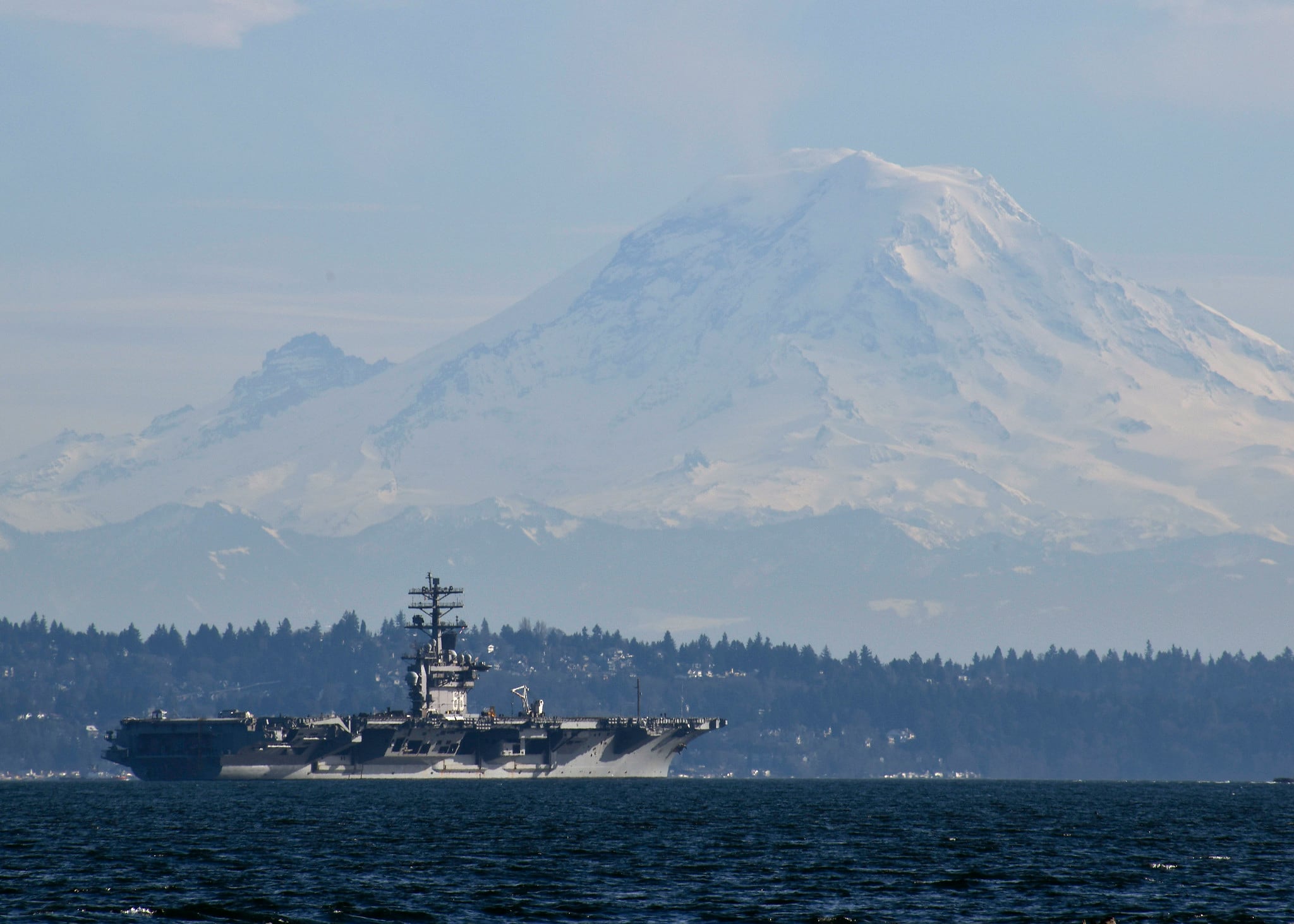A sailor who tested positive for COVID-19 on March 30 was found unresponsive Thursday morning and moved to an intensive care unit at a nearby hospital in Guam.
The sailor, who had been in quarantine since testing positive, is one of more than 400 confirmed coronavirus cases from the aircraft carrier Theodore Roosevelt, NBC News first reported. The individual is the first to require hospitalization.
Speaking to reporters Thursday, Air Force Gen. John Hyten, vice chairman of the Joint Chiefs of Staff, said that in addition to medical professionals checking in twice a day, sailors are using a buddy system to monitor one another’s health.
“It’s not just waiting for the medical folks to come out every 12 hours,” Hyten said. “They’ve got buddies that are around all the time. This particular one happened from night to morning, but there were buddies around and the buddies found him.”
The sailor’s hospitalization comes approximately two weeks after the carrier was first ordered to port in Guam to stifle a COVID-19 outbreak on the 4,800-person ship.
On March 24 the Roosevelt first reported that three of its sailors had tested positive for COVID-19. The infected crew members were airlifted off of the ship as a precaution, but within one week confirmed cases in the ship’s tight quarters spiked to nearly 100.
Navy officials ordered the carrier to port in Guam just over two weeks after the Roosevelt visited Da Nang, Vietnam. The decision to continue as scheduled with the Vietnam port call was made at a time when the country had only 16 confirmed cases, all of which were reportedly confined to the northern city of Hanoi, Chief of Naval Operations Adm. Michael Gilday said.
Capt. Brett Crozier, former commanding officer of the sidelined aircraft carrier Theodore Roosevelt, was relieved of duty last week in the wake of a leaked letter he penned pleading for help from military leaders.
“We are not at war. Sailors do not need to die,” he wrote. “If we do not act now, we are failing to properly take care of our most trusted asset — our Sailors.”
At the Pentagon Thursday, Hyten told reporters that “it’s not a good idea to think that the Teddy Roosevelt is a one-of-a-kind issue.”
“To think that it will never happen again is not a good way to plan.”
RELATED

In fact, a sailor assigned to the aircraft carrier Nimitz tested positive last week for COVID-19 as the ship ramps up preparation for a deployment this summer to the Pacific.
The Nimitz sailor is the first individual who has physically been onboard the carrier to test positive. Another crew member assigned to the Bremerton, Washington-based ship who previously contracted the virus had not yet boarded the vessel.
For sailors onboard Nimitz, the positive test has ignited concern over the possibility of another outbreak similar to one experienced by the aircraft carrier Theodore Roosevelt.
Along with the Nimitz and Roosevelt, at least one sailor each from the aircraft carriers Ronald Reagan and Carl Vinson have tested positive for the coronavirus.
Nearly 70 percent of the Navy’s confirmed cases have come from the Theodore Roosevelt.
J.D. Simkins is the executive editor of Military Times and Defense News, and a Marine Corps veteran of the Iraq War.




